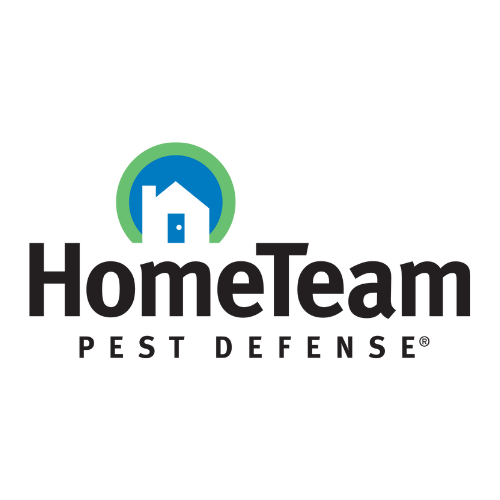Back to employers
Agricultural & Horticultural
The agricultural and horticultural industry is responsible for managing some of the country’s natural resources in various ways. Across the U.S., this industry also includes forestry, land conservation, and land research.
Agricultural encompasses a breadth of produce including:
- Grains and plant produce
- Dairy produce
- Animal meat and related produce
- Cotton and wool produce
The agriculture industry is divided into two core areas:
- Growers: including crops, which could be grown outdoors or using indoor/covered growing techniques.
- Farmers: including sheep, cattle, poultry, deer, and other livestock such as chickens.
The states play a vital role internationally in the export of agricultural services and products. Some of the top export products include:
- Soybeans
- Corn
- Pork and pork products
- Beef, beef products, and dairy
- Wheat
- Cotton
The horticultural industry encompasses:
- Fruit and vegetables produce
- Nuts and seeds
- Flowers, turf, and nursery products
The industry operates in a competitive domestic and international market, is very labor-intensive, and mostly seasonal.
Horticultural roles can be divided into two areas:
- Production: supporting the growth and production of seasonal plants and natural resources for sale/export.
- Amenity: supporting the growth and production of plants for recreational/residential purposes.
The U.S. Department of Agriculture supports, promotes, and provides jobs at every level across this industry and is a fantastic starting point for anyone wanting to get started. Their website details the different roles you could pursue and provides in-depth knowledge of the various subsectors within the industry.
Both the agricultural and horticultural industries rely on seasonal work due to the nature of the services and products they work with. It can be a demanding but incredibly satisfying industry to build a career in!
What You Could Do
Roles across the industry are incredibly varied and include a mix of low-skilled, entry-level positions, highly-skilled roles, and professional roles requiring in-depth and specialized knowledge/expertise.
Here’s a look at some of the top jobs you could pursue:
- Agricultural Consultant: Agricultural consultants work with farmers to address various issues or concerns, such as improving crop or livestock production, dealing with weeds or pests, improving soil health, and managing business processes. Agricultural consultants usually work across various locations, providing individualized and tailored support to farmers and businesses who need their expertise.
- Animal Nutritionist: Animal nutritionists act as dietitians for animals and livestock, creating healthy meals that meet the dietary requirements of animals in their care. They review different factors, including the animal’s activities (for example, milk production, reproduction, egg-laying). Animal nutritionists work alongside veterinarians, farmers, and other animal professionals. Animal nutritionists can work in farming, zoos, livestock feed manufacturers, and other environments concerned with the care of animals.
- Farm Manager: Farm managers are responsible for overseeing the day-to-day functions of an agricultural business. This can include administrative responsibilities, hiring experienced staff, and managing budgets and project management. It also involves various practical duties such as selecting crops and livestock, harvesting and selling produce, and responding to pests and other environmental factors. Farm managers work almost exclusively on farms, where they may also live either seasonally or full-time. Some farm managers may own the business, or families may hire them to manage the intense management of a family farm/agricultural business.
- Sustainability Consultant: Sustainability consultants help agricultural clients find sustainable solutions to their problems and business processes. This means drawing on ideas from science, business, and other disciplines to source outcomes that preserve environmental diversity and integrity and ensure the land is prosperous for generations to come. Sustainability consultants may work with individual farms and businesses or work for local/national government departments, providing expertise and guidance to support policy development across the sector.
- Horticulturist: A Horticulturist is responsible for the successful growth and production of different plant species. They may also coordinate research programs for selective crops. Horticulturists need to have extensive knowledge about a wide variety of trees, flowers, vegetables, nuts, bushes, and fruits – particularly native plants – and which ones grow well, in what conditions. They also need excellent seasonal knowledge to understand when and where to plant certain species and diagnose issues with the growth or production of certain plant species.
These job roles are only just scratching the surface!
The best way to learn more and help form decisions about the roles available and what you might be suited for is to conduct as much research as you can and build a profile from there.
Graduate Outcomes & Gender Split
While a degree is crucial for every role or career pathway into the agricultural and horticultural industry, it can help to know what employment from this route looks like.
The National Association of Colleges and Employers tracks graduate employment across different industry sectors.
Here’s a look at some graduate outcomes for agricultural studies:
- Agriculture Graduates in Full-Time Employment: 53.9%
- Agriculture Graduates in Employment Overall: 86.8%
Keep in mind that this doesn’t account for graduates working part-time and/or who may have continued to higher studies; these are promising percentages!
Gender Split
The gender split across the industry depends on the segment of the sector you work within.
The agricultural and horticultural industry has typically been very male-dominated, but this is beginning to shift.
Recent statistics indicate the split for solicitors is:
Average Salary
Current surveys in the sector indicate the median salaries for full-time roles in this industry as:
- Agricultural Consultant Roles: $54,000 to $63,500
- Farm Hand/Assitant Roles: $18,500-$20,500
- Farm Manager Roles: $42,100-$52,200
- Horticulturist Roles: $40,000-$59,800
- Horticultural Assistant Roles: $28,500-$38,000
Salaries can be pretty varied, with lower expectations for entry-level roles.
Salaries are also determined by several factors, including:
- The segment of the industry you work within.
- Your job title and seniority.
- The amount of experience you have.
- Location, some rural areas may pay less than roles in main cities.
Industry Growth
According to the Bureau of Labor Statistics, the overall employment of agricultural workers is projected to grow 1% between now and 2029. This is slower than the average for all other occupations.
Some areas are experiencing more growth than others. For example, the increasing global demand for corn, cereals, and other corn products is fueling the development of the agriculture industry in the U.S. Therefore, new business opportunities are constantly being created in the U.S. corn and cereal industry.
Agricultural and horticultural farms tend to use relatively large amounts of casual and contract labor at crucial times of the year. In contrast, broadacre and dairy farms tend to use this kind of labor more consistently throughout the year.
Although traditional employment may be declining, technological advances, an increased focus on developing sustainable practices, and the need for more innovative farming developments mean the sector is opening up new job roles and career pathways all the time.
The industry is growing, just in different ways to those that it may have seen historically.
Qualifications and Entry Pathways
For some professional roles, a bachelor’s degree can set you up well with the foundation of theory and knowledge to help you build a successful career in the industry.
Degree pathways you could pursue include:
- Bachelor of Agricultural Sciences
- Bachelor of Applied Data Analytics (Agriculture)
- Bachelor of Agriculture and Environmental Science
- Bachelor of Science (Advanced)
- Bachelor of Science (Animal Science)
- Bachelor of Viticulture & Oenology
Other pathway options might include:
- Scoring an apprenticeship: You can start an apprenticeship and work to gain industry-specific qualifications alongside your certificate of education and work experience.
- Work experience once you leave school: If you leave school at 16, you can apply for work experience and school-leaver programs in entry-level positions and work your way up over time as you can further skills and experience
Requirements will depend on the type of role you want and the company – so make sure you research.
Whatever your circumstances, grades, or preferred way forward – there’s a qualification pathway that will work for you.
Best Places to Study
Where you choose to study will be dependent on a range of factors, but some universities are rated higher than others for specific subjects.
Some of the best-rated universities for agricultural studies include:
- Cornell University
- The University of Florida
- University of Illinois
- Purdue University
- Michigan State University
- University of Wisconsin
- Harvard University
- Texas A&M University
Where to Learn More
You can learnmore about different pathways through professional bodies and organizations advocating for careers in the sector.
Some good places to start include:
And many more!
Each state will also have several professional organizations to help you learn more about the industry, network, and develop your career.







